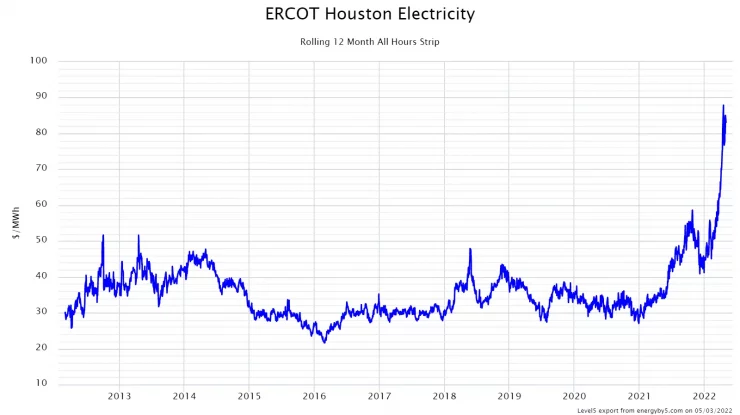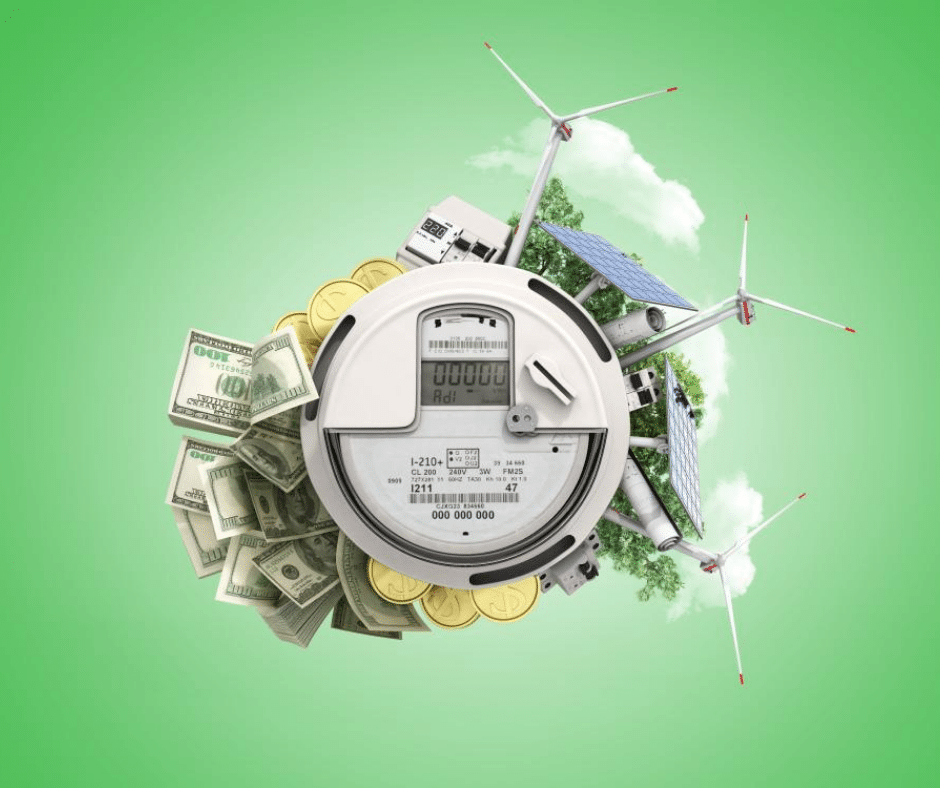In the literal Lone Star state (aka Texas) we have a --national-- state grid that is effectively isolated from rest of world and offers a "free market" power.
ERCOT (Electric Reliability Council of Texas) has a Wholesale rate, and retailers like NRG, Green Mountain, TXU, Gexa, Cirro, etc sell at Retail rate (obviously higher price).
There are over 60 Retail Electricity Providers in Texas offering hundreds of energy plans and rates.
Only a few of them offer rates with Net Metering
And what I have found is a pattern of:
Buy-back at Wholesale prices with ROLLOVER of credits to next month
Buy-back at Retail prices with NO-Rollover of credits to next month
QUESTION: which of the 2 systems is better contract? I was unable to find what a companies mark-up is, but about 50% seems to be what I see.
My bill is a rather low (by Houston) rate of $0.13/kWh, but the graph below shows wholesale (from March 2022) is $0.085 per kWh.
Side note: one provider offers wholesale to customer (with a $9.99 monthly fee, which is only good for big users).
ERCOT Wholesale price history Houston area (webp image, cannot upload to this forum)

ercot-exhibit1.png
solar pete
Pete, I can post industry and news links I used for research (no solar business).
Also web sites that discuss which Texas retailers support net-metering.
ERCOT (Electric Reliability Council of Texas) has a Wholesale rate, and retailers like NRG, Green Mountain, TXU, Gexa, Cirro, etc sell at Retail rate (obviously higher price).
There are over 60 Retail Electricity Providers in Texas offering hundreds of energy plans and rates.
Only a few of them offer rates with Net Metering
And what I have found is a pattern of:
Buy-back at Wholesale prices with ROLLOVER of credits to next month
Buy-back at Retail prices with NO-Rollover of credits to next month
QUESTION: which of the 2 systems is better contract? I was unable to find what a companies mark-up is, but about 50% seems to be what I see.
My bill is a rather low (by Houston) rate of $0.13/kWh, but the graph below shows wholesale (from March 2022) is $0.085 per kWh.
Side note: one provider offers wholesale to customer (with a $9.99 monthly fee, which is only good for big users).
ERCOT Wholesale price history Houston area (webp image, cannot upload to this forum)

ercot-exhibit1.png
solar pete
Pete, I can post industry and news links I used for research (no solar business).
Also web sites that discuss which Texas retailers support net-metering.


Comment